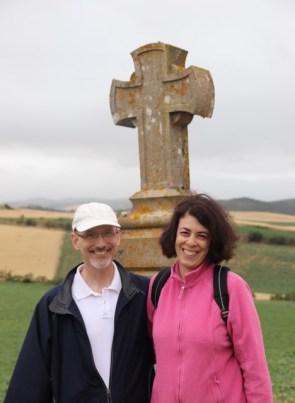“To say we have faith does not mean we automatically understand everything. It means we have the confidence to know God will help us understand.”
By Caroline Darrow ’21
Hello, my name is Caroline Darrow. Usually, I am the girl in the white gown sitting in the tiny chair next to Father, so you may not recognize me right now. But don’t worry I’ll be back there soon.
As I was trying to write this reflection for the Feast of Saint Thomas Aquinas, I wrote three different versions, but all of them felt like I was leading a kumbaya circle. So, I did the typical Fenwick procrastination, I did other homework instead. Nevertheless, as I attempted to complete my pre calc homework while at the same time contemplating Aquinas, I realized it is very hard to think about faith and logic in the same instance. However, Aquinas’ own teachings can help with this conundrum.
“Logic can clarify faith, while faith can prevent mistakes of logic.”
Caroline Darrow (of Clarendon Hills/Notre Dame School)
One of Aquinas’ most influential teachings was his study of the relationship between faith and reason. Throughout time, there has been a struggle as how to combine knowledge gained from revelation with knowledge gained from the observation of the natural world around us. Aquinas viewed both of these as compatible with each other as they both had been created by God. Logic can clarify faith, while faith can prevent mistakes of logic. In other words, using our logic we are able to reason through and clarify teachings of faith in order to fully comprehend what God is trying to tell us. Faith keeps our morals in check, while at the same time teaching us things we cannot observe through our senses, as we observe a society in which humans are susceptible to other worldly perspectives.

What does it truly mean to seek God in faith and reason? Each day, we pray before classes in which we never speak about God. You most likely won’t contemplate Catholic teachings while solving logarithms, but you will have times when you question aspects of your faith because to say we have faith does not mean we automatically understand everything, it means we have the confidence to know God will help us understand. To aid in understanding, we must combine both our faith and logic to come to the best conclusion. God has instilled faith and logic in our lives, and it is our job to find a way to follow Aquinas, embracing both ways to gain knowledge in order to follow the path God has sent us on.
Continue reading “Faith, Logic and St. Thomas Aquinas: the Great Dominican”













